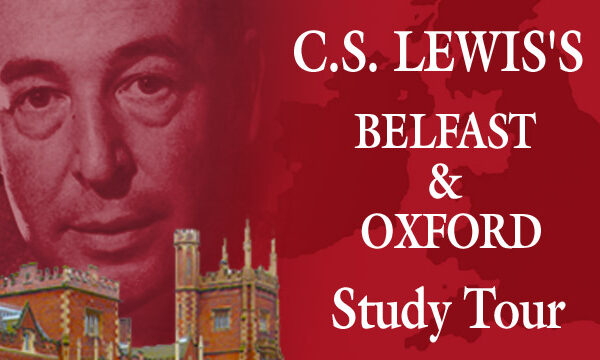Back to series

April 2012
C.S. Lewis’s spiritual journey went from childhood belief in God, to atheism, to agnosticism, to theism, and finally to belief in Jesus Christ as the Son of God. His own search for truth gave him the ability to communicate the key distinctions between Christianity and other religions. In an essay entitled, The Grand Miracle, Lewis gets to the heart of why the miracle of the incarnation and resurrection is essential to Christian faith. Lewis writes:

One is very often asked at present whether we could not have a Christianity stripped, or, as people who asked it say, ‘freed’ from its miraculous elements, a Christianity with the miraculous elements suppressed. Now, it seems to me that precisely the one religion in the world, or, at least the only one I know, with which you could not do that is Christianity. In a religion like Buddhism, if you took away the miracles attributed to Gautama Buddha in some very late sources, there would be no loss; in fact, the religion would get on very much better without them because in that case the miracles largely contradict the teaching. Or even in the case of a religion like Mohammedanism, nothing essential would be altered if you took away the miracles. You could have a great prophet preaching his dogmas without bringing in any miracles; they are only in the nature of a digression, or illuminated capitals. But you cannot possibly do that with Christianity, because the Christian story is precisely the story of one grand miracle, the Christian assertion being that what is beyond all space and time, what is uncreated, eternal, came into nature, into human nature, descended into His own universe, and rose again, bringing nature up with Him. It is precisely one great miracle. If you take that away there is nothing specifically Christian left. There may be many admirable human things which Christianity shares with all other systems in the world, but there would be nothing specifically Christian.
Conversely, once you have accepted that, then you will see that all other well-established Christian miracles—because, of course, there are ill-established Christian miracles; there are Christian legends just as much as there are heathen legends, or modern journalistic legends—you will see that all the well-established Christian miracles are part of it, that they all either prepare for, or exhibit, or result from the Incarnation. Just as every natural event exhibits the total character of the natural universe at a particular point and space of time; so every miracle exhibits the character of the Incarnation.1
Do you believe in miracles? Are you captivated by the miraculous work of Christ? To be Christian is to accept the one grand miracle and to believe that the God who was, and is, and is to come, can and will continue to work the miraculous in our lives and in the life of the church.
If there is no resurrection of the dead, then not even Christ has been raised.
And if Christ has not been raised, our preaching is useless and so is your faith.
I CORINTHIANS 15:13-14 (NIV)
1 C.S. Lewis, God in the Dock. (Grand Rapids: Eerdman’s, 1970), pp. 80–81
 COPYRIGHT: This publication is published by C.S. Lewis Institute; 8001 Braddock Road, Suite 301; Springfield, VA 22151. Portions of the publication may be reproduced for noncommercial, local church or ministry use without prior permission. Electronic copies of the PDF files may be duplicated and transmitted via e-mail for personal and church use. Articles may not be modified without prior written permission of the Institute. For questions, contact the Institute: 703.914.5602 or email us.
COPYRIGHT: This publication is published by C.S. Lewis Institute; 8001 Braddock Road, Suite 301; Springfield, VA 22151. Portions of the publication may be reproduced for noncommercial, local church or ministry use without prior permission. Electronic copies of the PDF files may be duplicated and transmitted via e-mail for personal and church use. Articles may not be modified without prior written permission of the Institute. For questions, contact the Institute: 703.914.5602 or email us.
-
Recent Podcasts
A Welcome Change in Apologetics
by Randy Newman, Aimee Riegert on April 19, 2024We’re burdened for our friends who don’t know...Read More
-
Questions That Matter Podcast – Samuel James and Digital Liturgies
by Samuel James, Randy Newman on April 19, 2024
-
The Side B Stories – Dr. James Tour’s story
by Jana Harmon, James Tour on April 12, 2024
-
Recent Publications
Isn’t Morality Relative?
by Christopher L. Reese on April 1, 2024It is widely accepted in the Western world...Read More
-
Do Muslims and Christians Worship the Same God?
by Andy Bannister on March 1, 2024
-
Artificial Intelligence and Its Impacts on Humanity
by John Lennox on February 13, 2024
0
All Booked
0.00
All Booked
0.00
All Booked
20599
GLOBAL EVENT: 2024 Study Tour of C.S. Lewis’s Belfast & Oxford
https://www.cslewisinstitute.org/?event=global-event-2023-study-tour-of-c-s-lewis-belfast-oxford-2&event_date=2024-06-22®=1
https://www.paypal.com/cgi-bin/webscr
2024-06-22

Next coming event
Days
Hours
Minutes
Seconds
GLOBAL EVENT: 2024 Study Tour of C.S. Lewis’s Belfast & Oxford
On June 22, 2024 at 12:00 pmat Belfast, Northern Ireland & Oxford, EnglandSpeakers

C.S. Lewis Institute
Author





